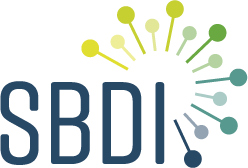If you are an experienced developer, consider joining the Living Atlases (LA) community effort and help develop the technical platform used by SBDI! There are several different ways to do so.
In the SBDI technical working group and the LA community, we use standard tools for distributed open-source development. This means that most of the code is developed openly on GitHub. You can start by simply exploring the code repositories shared on GitHub by SBDI and by Atlas of Living Australia (for the LA community). An easy and informal way of contributing small improvements to any of these repositories is simply to fork it, add some functionality, and post a pull request. This is standard procedure in the GitHub community and should be familiar to most open-source code developers. If it is new to you, consult the help pages at GitHub for an introduction to the GitHub workflow.
If you are familiar with R development, we would particularly welcome contributions to the SBDI4R package. The core of the package is a thin wrapper around the SBDI Bioatlas APIs. However, our ambition is also to provide powerful interfaces from this R package to all important non-SBDI resources on the web that are useful in the analysis of Swedish ecosystems. For instance, this might include access to environmental, climate and economic data or powerful visualization, mapping and analysis services. Start by exploring the GitHub repository for SBDI4R. Then just hack away, or contact our developers if you want to discuss your ideas first (you can use our support form for this).
The LA platform itself is developed using a range of programming languages and technologies. Java, JavaScript, Groovy, HTML and CSS are among the most commonly used ones. Browse the Atlas of Living Australia organization on GitHub for more information on the LA platform components. This GitHub organization is managed by the Australian LA team but serves as the upstream source for the entire LA community.
Before embarking on a more ambitious project, you may want to get in contact with the developers in charge, and talk to the LA community coordinators. You can also sign up for the community mailing list or get onto the community Slack channel. The LA community offers regular workshops, training materials and other resources to get you off the ground. The LA community web page is a great place to start. For instance, the web page guides you to instructions on how you can set up and run a separate instance of the LA platform on your own computer. You may also want to consult the SBDI Bioatlas components at DockerHub, which greatly facilitate deployment of a local instance of the Bioatlas.
If you feel a need to improve your programming skills, SBDI regularly offers workshops and hackathons at different levels teaching programming languages and technologies that are relevant for power users and developers in the biodiversity informatics community. Check our course offerings and training materials or request a new course by contacting our Support Center!
